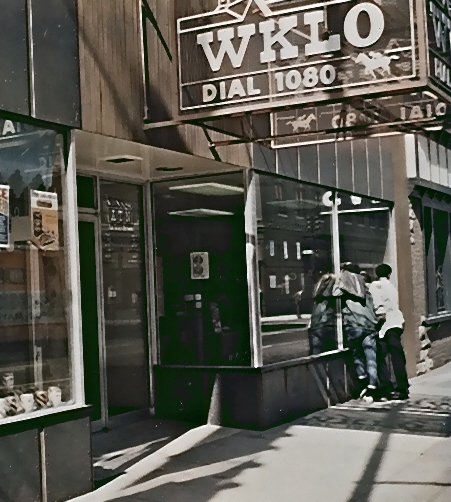|
Ernie Gudridge Recognizes
Special Efforts at WKLO |
WKLO
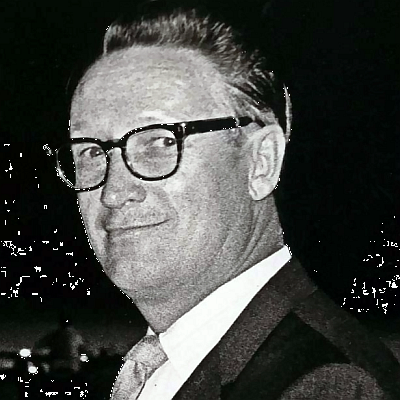
We received this in February 2018
from former WKLO GM Ernie Gudridge:
I want to recognize special efforts at
WKLO. As I look back on those halcyon days from 1964 to 1976 in
Louisville, I realize how fortunate we all were in coming together in a
structure and market that was ready to appreciate our efforts. So we
were truly able to carry out the challenge of the Communications Act of
1934:
"To operate in the
public interest, convenience and necessity."
We all did that in a spectacular
fashion, with outstanding individual contributions from many people. I
wish I had the time and space to mention all who were part of a special
broadcasting experience.
But there are four people that I do want to mention. They had that
special ability of identifying an idea that could be made better and
they did.
When Mitch Michael (Terrell Metheny} came to WKLO in the fall of 1964 as
Program Director he brought experienced enthusiasm, program format
management and determination that pulled us all along with him. Making
an idea work better: School Spirit contest, losing Chickenman; and Toys
For Tots. (Good broadcaster, too. I remember those 50% afternoon
drive-time audience shares.) WKLO moved quickly into No. 1. It was a
clear case of talent, imagination and skill waiting for the right
opportunity. He was just that for WKLO.
At the same time Bruce Clark was on the engineering staff at the
transmitter. And wanting to do more. The Chief Engineer position soon
opened up and Bruce was on his way. He created, maintained, and remained
diplomatic, thoughtful, and considerate whether it was pleading our case
before the Floyd County, Indiana, government for new towers to go to
50,000 watts, or designing and building the best emergency warning
system in the country. The disastrous tornado of 1974 was the catalyst.
Bruce and WKLO gave this invention to the communities, helping
newspapers, TV and radio stations, and first responders to be ready for
any emergency.
"25 SECONDS FROM THE
SIGHTING OF A FUNNEL CLOUD
TO THE BROADCAST BY THE WEATHER BUREAU TO EVERYONE."
And to top it off, after consulting
with Fred Rose and his chief engineer in Nashville, he designed and
built a recording studio where Victor Jory recorded a spot for Actor’s
Theatre. He said he never sounded so good. You may remember Mr. Jory
played The Shadow in 1930’s radio….and "The Shadow Knows!"
Meanwhile, a young man who grew up in broadcasting in Oklahoma was
polishing his skills in the studio as a disc jockey. That included
already acquired capabilities in news broadcasting and news management
leadership. WKLO had a good foundation in news through previous
effective journalists. Soon Allen Bryan became News Director and built a
news department as good or better than any pop music station in the
country. Those same skills led him into staff positions in Louisville
and Kentucky governments. He sent out reporters to cover events with a
briefing so thorough other reporters were anxious to hear what questions
would be asked The basis laid by Allen was continued by those who
followed and some remarkable coverage occurred.
As Louisville Safety Director, he kept control of a very delicate
situation while local fire departments protested "school busing" at a
national Democratic party policy convention in February, 1976 that
included the leading contenders for the Democratic presidential
nomination. Jimmy Carter emerged as a strong contender that night.
When Terrell Metheny pursued his career in New York City, Bill Hennes,
was named Program Director. Bill was earlier known as "Wild Willie," a
very popular night disc jockey on WKLO. Soon broadcast skills,
imagination and an indefatigable determination to "do things right"
carried the day, and WKLO was back on top. Bill was different. He was
very conscious of the wants and needs of the listeners particularly
through demographic data and responded to them. He became a Program
Consultant after leaving WKLO and still is one today. Google "Bill
Hennes" and you’ll see.
WKLO had a lot of really good people who joined with these four people
to help WKLO reach extended exceptional moments from 1964 - 1976.
Everyone made me very proud to be general manager of WKLO
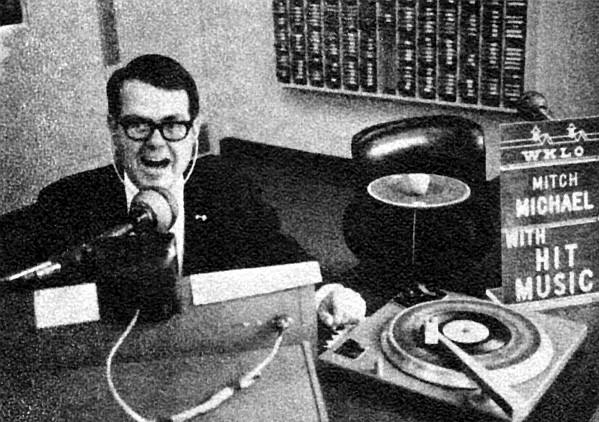
Terrell Metheny ("Mitch
Michael") responds:
In my 50 years in radio
("on air to owner"), THE BEST time of my radio life were the four years
working for and with Ernie Gudridge at WKLO, 'scuse me, RADIO WKLO.
Ernie took a big gamble hiring me to my FIRST PD job. He was amazingly
skillful at guiding me in such a way that I felt as if I had total
"autonomy", while he was always in control.
We put together a truly
"All American" team. About all came to "Big Lou" from smaller markets,
and most all went on to enjoy fabulous success in larger markets or
carved out great careers in Louisville.
Bill Bailey, Chuck
Browning, Lee Gray, Carl Truman Wiglesworth, Jack Sorbi, Charlie Knox,
Bill Clark, Ken Douglas, Jack Gallo, Jon Grey, Wild Willy, Al Risen, and
Johnny Randolph joined Jim Fletcher and Allen Bryan, already there. And,
that was only between 1964 and ‘68. The All American roster continued to
grow after that with incredibly talented people.
I remember trying to out
wit “Little Danny Masden” who was a constant contest winner. Dan Mason
ended up out witting all of us.
Ernie Gudridge was always
sort of in the background, skillfully leading, directing and teaching
his delegated "leaders". He met with all new employees, telling us of
the benefits of being a part of (then) Air Trails owned by The Honorable
Charles Sawyer, and all the achievements of Mr. Sawyer and how we should
strive to honor his reputation.
Knowing that most all of
us were coming aboard as a stepping stone to try to reach our dreams of
advancing to a bigger market, he told us of The Air Trails profit
sharing plan and how it could provide great comfort in our retirement.
He was letting us know that for him this was a sincere and long term
loyal commitment.
In my time there, only one
person was "fired" and it broke Mr. Gudridge’s heart, and mine. We had
an evening jock who was excellent on the air and who was a dedicated
radio fanatic. Unfortunately, he violated company policy over and over
and over in spite of warnings. As an evening jock, he would invite his
wife to come to the station and sit in the control room. Visitors were
not allowed in the showcase studios. And, his wife would bring her
little dog which had a bad habit of piddling on the new "Air Trails
Blue" carpeting. The final straw was when the pooch took a dump on the
carpet about half way up the long center hallway, and it was left to be
found the next morning. "Now, you know the real story."
Mr. Gudridge had a
fantastic ability to guide his department heads in a way that made
everyone of us think that what we were doing was ALL from just us.
We actually did some
remarkable radio. Our mission was to be 50% Music and 50% News.
Obviously, the music consumed more time, but both were of equal
importance. Allen Bryan did a fabulous job with his 50%.
It was the very quiet,
unassuming but confident Bruce Clark who kept us going and made it all
happen. Example: we had a showcase studio in front of a large glass
window with crowds of people standing and watching the Air People. To
keep them from being distracted by someone working on the equipment, as
much equipment as possible was located in the basement directly under
the control room. To work on what had to be maintained in the room, the
room was laid out so the air people were in front and what needed
service was out of view behind them.
In those days Public
Affairs programming was required, and the amount of time required was
pretty hefty. Ernie came up with The Radio WKLO Question Man. Bob Henry
would go out on the street and ask topical questions of people on the
street. While appearing to be entertainment, they were actually grounded
in community needs topics. It was Ernie who came up with the plan to
make the bits run 91 seconds. Approved by our Washington attorneys, we
rounded off 91 seconds to the nearest next number: 2 minutes, thus
satisfying our PA requirement with less time. And, every person
questioned was given a card to remind them of the station, but not the
time or day of their appearance on the air, thus they might need to
listen for a few days to hear themselves, and just might have been
hooked as listeners during that time.
I could go on and on, but
suffice it to say that many people owe a great deal to E. A. Gudridge
who hired us, led us, inspired us and blessed us when/if we departed.
Thank you to a forever
young "old friend" for writing such a nice letter about the good times
at Radio WKLO. God bless.
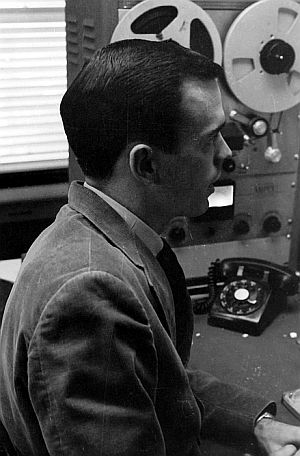
Allen Bryan responds:
Thanks for your
compliments. We really had a great thing going for about 10-12 years. I
have always credited my time at WKLO as the basis of any success I had
the rest of my career, and greatly appreciated the opportunities you
offered me to explore positions that extended my knowledge and skills. I
am amazed today to look back at the size and talent we had during those
years on our staff. It was truly a Hall of Fame team.
(To Terrell) It was one of
the huge defining experiences of my life. I left broadcasting in 1973
after nearly 20 years in the business. but my experience and learning
that happened at WKLO was the basic foundation for everything I did the
rest of my professional life. It was like living in a graduate school of
life that served me well in all the many different positions in
government, and private sector management. Ernie was the glue that held
it all together, and the rest of us were great team players. It is great
to still be connected with you and Ernie after all these years. You were
brilliant as Program Director and creating the sound at creativity in
the Radio WKLO package.
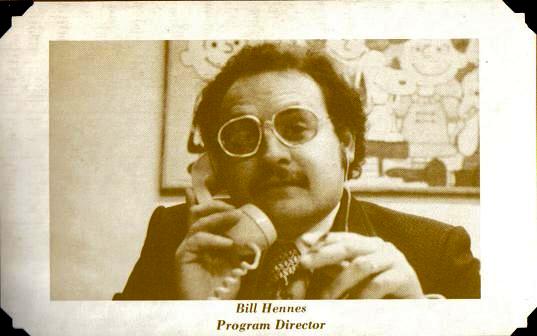
Bill Hennes responds:
Ernie, you are most
gracious. Thank you for being a great GM and allow me to take WKLO to
the TOP again.
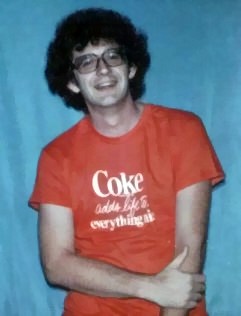
From former WKLO
DJ/MD/PD Gary Major:
For those of us who are
the WKLO alumni, we were blessed by being able to work with
professionals (most of the time) and one of the first things you did
when you were hired was to make sure that every one of your broadcast
friends knew that you had been hired at the legendary WKLO.
I came to Louisville in
1973 as night time jock and shortly thereafter Music Director,
eventually becoming the last PD of WKLO but I will never forget my first
meeting with Ernie. He told me all about the retirement plan, how i
would be vested in 10 years. I told him I only planned to be in
Louisville for a year or two. I write this after spending the last 44
years here.
I had listened to Wild
Willie when he was at WTAC in Flint and at some point at a convention we
got a chance to sit and talk, I never directly worked for Willie and but
was in a project or two and at one time almost went to work for him.
And to have the chance to
work with one of the finest people you will ever met and watch the magic
he created in that basement engineering area truly tops the list of
extraordinary people i worked with at WKLO and that would be Bruce
Clark. WKLO ceased to exist in the late spring of 1979, but I stayed in
touch with Bruce and in 1982, I got a phone call saying the WKJJ (the
former WKLO FM) needed a PD and morning man and he told me who to call.
The PD job was taken but I went back to the same Great Trails property
for another 6.5 years for a total of 12.5 years.
From former WKLO
employee Rich Gimmel:
I was blessed to work at
Radio WKLO part time as a high school kid in 1966 -- my first job in
broadcasting. I was absolutely blown away by the talent and
professionalism of the four men mentioned here -- and others. They
scared the crap out of me. But let's not forget: Mr. Gudridge put this
team together. NONE of this would have happened without him. At WAKY we
referred to the GM as "Joel" or "Al." But at WKLO it was "Mr. Gudridge."
From former WKLO
employee Carolyn-Marion Hopkins:
I feel very honored to
have worked with all of you, from '70-'73. It was a magical time to be
working at KLO. We were all pretty young and therefore never worried
about trying to work outside the box, resulting in our best creativity.
What a time to be copywriter and P.S. Director. Bless Larry Graham who
wrote so many marvelous jingles in the basement studio. Steady as a rock
Kathleen Brown, so many talented voices and friends. Afterward I crossed
over to WAKY, then on J-town and A-M Productions. Blessed now as the
voice in 250 airports worldwide. Thank you Mr. Gudridge, for being at
the helm, allowing us to learn life lessons that stuck.
